Tooley: Hello this is Mark Tooley, editor of Providence: A Journal of Christianity & American Foreign Policy, with the pleasure today of interviewing our sometimes Providence contributor Eric Farnsworth, head of the Washington, DC office of the Council of the Americas and a longtime Latin American expert. He wrote a fascinating overview of what happened to Venezuela over the last two decades as the calamity continues to unfold. So, Eric, thank you for joining us and give us a brief overview of what’s happened in Venezuela these last 20 years.
Farnsworth: Well, thanks, Mark, it’s great to be with you again. These are really complicated issues and Venezuela over the last 20 years has really gone from a country that was an imperfect but robust democracy and friend of the United States to a country that is an authoritarian dictatorship. And truly a country that has positioned itself in opposition to the United States and the West. Meanwhile, creating the largest humanitarian crisis in the modern history of Latin America. And in the article, I source that to the founder of the so-called Bolivarian Revolution Hugo Chavez, who came to power first in 1999 and immediately instituted what has come to be known as “Chavismo,” or the movement founded in his image as a cult of personality that has led to the crisis that we see today. And even though Chavez himself died in 2013, his successor Nicolas Maduro has carried on, and in fact deepened the crisis through his actions and some of the things that he has been trying to do. So, it’s a real problem, and I tried to show the direction that the country is going at this moment.
Tooley: And as you noted in your article, Venezuela had been one of the wealthiest nations in the Western hemisphere and a relatively stable democracy throughout the latter part of the 20th century. So, in many ways, calamity for Venezuela is even more dramatic than what befell Cuba isn’t it?
Farnsworth: That’s a really good point. The part of the tragedy is this whole thing is so completely unnecessary. It’s a man-made disaster. It didn’t come through warfare. It didn’t come through natural disaster. It came from misplaced ideological and personal ambitions of the leadership that really has turned the country into an economic basket case and to humanitarian disaster. So, these things could have been avoided. They don’t need to be there. And that’s really one of the problems that we see right now in the country.
Tooley: Why has there not been more resistance or some sort of course correction within Venezuelan society? Was civil society so eviscerated that there were no institutions left to react to the dictatorship?
Farnsworth: Yeah, that’s part of it. It’s a really complicated question you’re asking. It’s multifaceted, but I think we do have to go back to the original vision of what Hugo Chavez claims to want for his people, and that was to redistribute the vast quantities of oil wealth that had previously essentially gone to a well-connected elite and to redistribute those resources to the broader population, give greater access to healthcare and education, infrastructure, schooling. All the things that, frankly, everybody wants worldwide. And because the price of oil was very high at the beginning of the century and countries like China were coming online and demanding quantities of natural resources, Venezuela was truly awash in cash. And so, there was a period of time at the beginning of this century that the poverty rate was being reduced, education levels were increasing, and there was a sense that Venezuela was really a country that was using its wealth to benefit its people. Of course, that was unsustainable, and as soon as the price of oil fell and also the massive corruption that Chavez had instituted began to take its toll and the brain drain of managers and professional class to Columbia, to Brazil, to neighboring countries, indeed, to the United States and Canada, with very successful energy sectors, those all began to take their toll. And the economy began to really have difficulties. But there was an image that was developed that here’s a country that was trying to do well for its people. And if you look at or if you asked many observers internationally, even today, who don’t follow these issues closely and you ask them about their impressions of Hugo Chavez or Venezuela, many of them will say well yeah, he was a big success for the country. And, in fact, he was a complete disaster for the country. But it was built on this impression of a growing economy and distribution of proceeds that, as I mentioned, is unsustainable. But that did forestall, for example, some of the pushback that you might have received from the international community, or indeed from the Venezuelan population themselves, because many were benefiting that here beforehand had not benefited. And you can’t blame them for that. When it became clear that this was, rather than an effort to redistribute wealth, but rather it was a way to consolidate power by using the allure of wealth broadly distributed, it was in some ways beginning to be too late, because then, as you were alluding to, by then, many of the institutions of the state that would have served as a brake on the ambitions of the executive had already been captured by the executive, whether it’s military and security forces, whether it’s the courts and judicial branch, whether it’s the national oil company, the Central Bank, the education system, the press, you name it. You go down the list of institutions, and they had been captured by the central government. And so, this was something that, when it became clear what was happening, Venezuelans did go to the streets in the millions. They did protest, and many have lost their lives because of that. The regime has killed them, right, by sharpshooters and people who have, security forces and goon squads there run around and try to enforce discipline. So, it’s been a really terrible thing. With that in mind, many Venezuelans are frankly tired and spend much of the time just trying to find access to food and medicine for their families and themselves. And that’s a full-time job in Venezuela. Or they have left. You have between five and six million, estimates vary, but between five and six million people, citizens of Venezuela, have left the country and are now refugees. And if you look at the pre-crisis population of Venezuela of 33 million, and you subtract 6 million, that’s almost 20% of the population has now left the country. Where else in the world could that have happened and it wouldn’t be an international outcry? And here, isn’t Venezuela in our own hemisphere? And almost nobody even recognizes it. So, a really important question that you’re asking, multifaceted, and I think I’ve just touched the surface on it, but want to give you a feel of some of the issues.
Tooley: On about 25% the country having left, I believe that with Cuba and Castro, it was about 10%. So, that’s quite remarkable having exceeded even the exodus from Cuba.
Farnsworth: Yeah, it really is. The irony here is that Cuba has been at the right hand of first Hugo Chavez and now Nicolas Maduro. At every turn, it has been a real advisor to the country, showing revolutionary best practices, if you will, and certainly ways to deal with the United States and counter the United States. Cuba had a head start in terms of learning how to do that with the US, but absolutely, the expulsion, or indeed encouragement, of exit of their own citizens has long been a facet of Cuba’s own policies. And we remember the Mariel boatlift and remember other times in history where Cuba, frankly, has used the outflow of its own people as a way to remove pressure on the regime politically, to reduce pressure on its economy in some ways, to empty its own jails, and to get rid of people that the regime simply doesn’t want on the island. And that has been exported. That model has been exported to Venezuela quite intentionally, and, as you say, the numbers, the raw numbers of people, affected by Venezuela far exceeds what Cuba ever was. And yet again, how many people in the Western world or outside of Venezuela itself even know it’s a real conundrum?
Tooley: And then, Venezuela of course is historically a Roman Catholic country, but there is now a significant evangelical minority that has been growing. What has been the church’s role and response to the growing powers of the dictatorship?
Farnsworth: A really important question. And when I say all of the institutions of the state have been captured by the executive and all of the institutions, like the free press, have also been captured, there’s one institution has not yet been captured at least completely by the regime, and that’s the faith community. As you say, Venezuela has traditionally been a Roman Catholic country. And the Pope indeed has tried to try his hand and those of the emissaries in helping to resolve the crisis, serving as an emissary, beginning to try to serve as an interlocutor to the opposition, calling for dialogue and peaceful resolution. Those efforts, unfortunately, have not been successful, but there’s also a growing community, the evangelical community, which tends to be a little bit more politically active in some of these issues and less willing to accept what the status is demanding in terms of their beliefs, in terms of their behavior. You also have a small but very important Jewish community within Venezuela as well. And one of the unfortunate aspects of Hugo Chavez, now Nicholas Maduro, are allegations of anti-Semitism and targeting of some of the Jewish population. That’s been a very unfortunate aspect, and if you take that and put it next to some of the things that they have done politically, for example, welcoming Hezbollah operatives into Venezuela, courting Iran and building a relationship between Venezuela and Iran, this is something that the Jewish community and many others are very wary about and look on with suspicion, and appropriately so. These are issues that are complicated. Many folks in Venezuela simply want to be left alone to worship as they see fit, but at the political level, this is something that, indeed, the regime itself is worried about, because like all authoritarian regimes, really are looking to control your people. And the one group of people who tend not to be able to control, as we see in authoritarian regimes around the world, are people of faith who respond to a different leader. And that’s something that’s very true in Venezuela as well.
Tooley: Have there been elements of the church that have been collaborationist with the regime and identified with some form of liberation theology?
Farnsworth: Yeah, it does vary. You can’t say that people of faith are one block. That is a very fair point. It’s good question and, in fact, certain pastors or church leaders have cooperated with the regime for their own purposes. Maybe it’s because they have political ambitions and for others it’s because, frankly, they want access to some of the humanitarian food aid that they can only get if the regime favors them. And there are others who have taken a different approach, who have spoken out against the regime, who have provided safe haven to folks who might otherwise be political prisoners, who have continued to be poles of influence to show that not everybody is bowing to the official. So, it is a varied tapestry, but you have to have people make their own decisions. But speaking as an outsider, we also have to recognize there’s real personal risk in a country like Venezuela. At this point to stand up and be counted and to say, “I’m not going to abide by the regime dictates. I’m going to have a different course,” and the more public you are, oftentimes the more difficult that is. And so, it’s a very complicated and difficult scenario that many, many pastors, many lay people, many people find themselves in right now.
Tooley: You’ve mentioned that, as well as alignment with the unsurprisingly rogue regimes, Iran, of course, Cuba, China, to some extent I believe there’s some ties to North Korea. But within the Western hemisphere itself, they’re relatively isolated at this point, other than Cuba. Is that the case?
Farnsworth: Yes, or certainly at the official level. But they do have other friends, like the Daniel Ortega, and then of course the newly-elected leader of Bolivia. Ecuador has elections coming up, and depending on who wins there could change the course of Ecuador. The leadership in Argentina has a different approach to Venezuela than its predecessor. So, these are very fluid relationships, and I guess there are a number of countries, certainly in the Western hemisphere and worldwide, who don’t even recognize Nicolas Maduro as the leader of Venezuela. Up to 60 countries continue to recognize Juan Guaido as the interim President of Venezuela, including the United States. But there are any number of countries, Russia, China, Iran, Turkey, who continue to recognize Maduro. And there are some very important Latin American countries that continue to recognize him as well, so it’s a mixed bag, if you will. And one of the things that you learn the longer you’re involved in regional affairs and regional politics is that one administration to another in the same country can dramatically shift foreign policy. And so, depending on where we are in the electoral cycle, oftentimes that means a different approach to a country like Venezuela. And that’s what we’re finding as well.
Tooley: Is there a wider lesson here for people everywhere in terms of how you can lose your democracy? He was elected in I guess a fairly fair election in 1999 and initially popular for a number of years, so the people of Venezuela themselves are somewhat complicit in the demise of their own democracy. What lessons can we draw from that?
Farnsworth: Well, I think there’s some important lessons. You’re right, I mean, Hugo Chavez initially was freely and fairly elected, and he was reelected, and he won several referenda throughout the years. They became more and more, the elections became more and more, subject to influence and capture and became more favorable grounds on which to contest those elections. But that was one of the basis of his legitimacy. And even now, people internationally will say, “Oh, Chavez was democratically elected, so who are you to say that he shouldn’t have been the President of Venezuela?” And he was democratically elected. And he came to power because at that point, Venezuelan civil society was sick of the corruption, sick of the political gamesmanship, sick of the two-tiered society of the elites who had an awful lot of money and everybody else who didn’t. And so, I think the first lesson we have to draw is that societies have to be healthy for democracy to survive. If there is somebody out there who says, “I’m the savior. I’m going to fix everything that’s wrong in society. I’m going to lift up all the downtrodden,” and he or she is seen in that way, well we’ve got to make sure that society doesn’t get to that point in the first place where it’s looking for a savior and thinks it needs a savior because things are so bad. For the majority of people, I think that’s point number one. I think point number two, it’s easy to get blinded by prosperity. I mean that’s what happened in the Venezuelan perspective. When there was a lot of money going around, people who had never had disposable income suddenly had it. And if your life is going well, if you’re buying things you weren’t able to have before, if you have better prospects economically, well, what does it really matter to you what the makeup of the supreme judicial committee looks like, or who’s on the Supreme Court, or if the military is taking an oath to the Constitution versus a personal host to the leader. Does that really matter to you if your life is going well? And a lot of people said well, no, it probably doesn’t. I mean, I’m doing okay, so if they want to do those things no skin off my back. But at the end of the day, as more and more of those things build on each other, you end up with a society that’s given up its freedom and its liberties in pursuit of perhaps personal financial gain. And at some point, the personal financial gain goes away, and what are you left with? Well, an authoritarian dictatorship without much hope. And that’s exactly where they are. So, I think that’s an issue that has to be worked as well. People have to recognize, I think economic gain isn’t everything, and you can lose your democracy. But I think you also have to recognize that democracies, no matter how long a democracy has been around, including the United States, but certainly Western democracies more broadly, you have to work at it. These issues that just because you were democratic 10 years ago, 20 years ago, 200 years ago, doesn’t mean that we’re going to be democratic 200 years from now, or even 10 years from now, or even 10 days from now, if we’re not doing the hard work of blocking and tackling, of civics education, of historical understanding of putting in the broader context of what is the American idea, for example, or more broadly, a democratic ideal. What are the obligations of citizens, not just the expectations of citizens, but also the obligations within a democratic society? Teaching these values, but also living these values, and not just at the community level, but frankly, at the political level as well, because the one thing that people hate no matter where they are globally is hypocrisy. And if the political class is asking you to do things that they themselves are not willing to do, for example in real time, waiting in line for COVID vaccinations, as we’ve seen around Latin America, your population is going to get tired of you pretty quick. And these are some things that I think, they’re almost so basic that why are we even talking about these issues, but we do have to talk about them, because democracy is a fluid issue. And you can take it for granted. And I think that’s the final point, you can’t take democracy for granted. You have to work at it. Venezuela was not a perfect democracy. By no stretch was it. But it did have democratic institutions, democratic history, democratic practice, and yet, here we are. And again, it’s the worst humanitarian crisis in the modern history of Latin America, as I said earlier. And how did you get from where we were to where we are? Now that’s something that academics will be studying for a long time, but I think what we have to try to ensure is that there aren’t any other countries that take that path, in the Western hemisphere, certainly, or worldwide.
Tooley: Eric Farnsworth of the Washington office and the Council of the Americas, thank you for a fascinating analysis of Venezuela and its lessons for us.
Farnsworth: Mark, it’s terrific to join you. Thanks for having me.

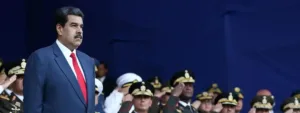
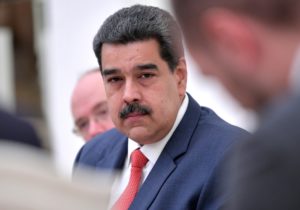
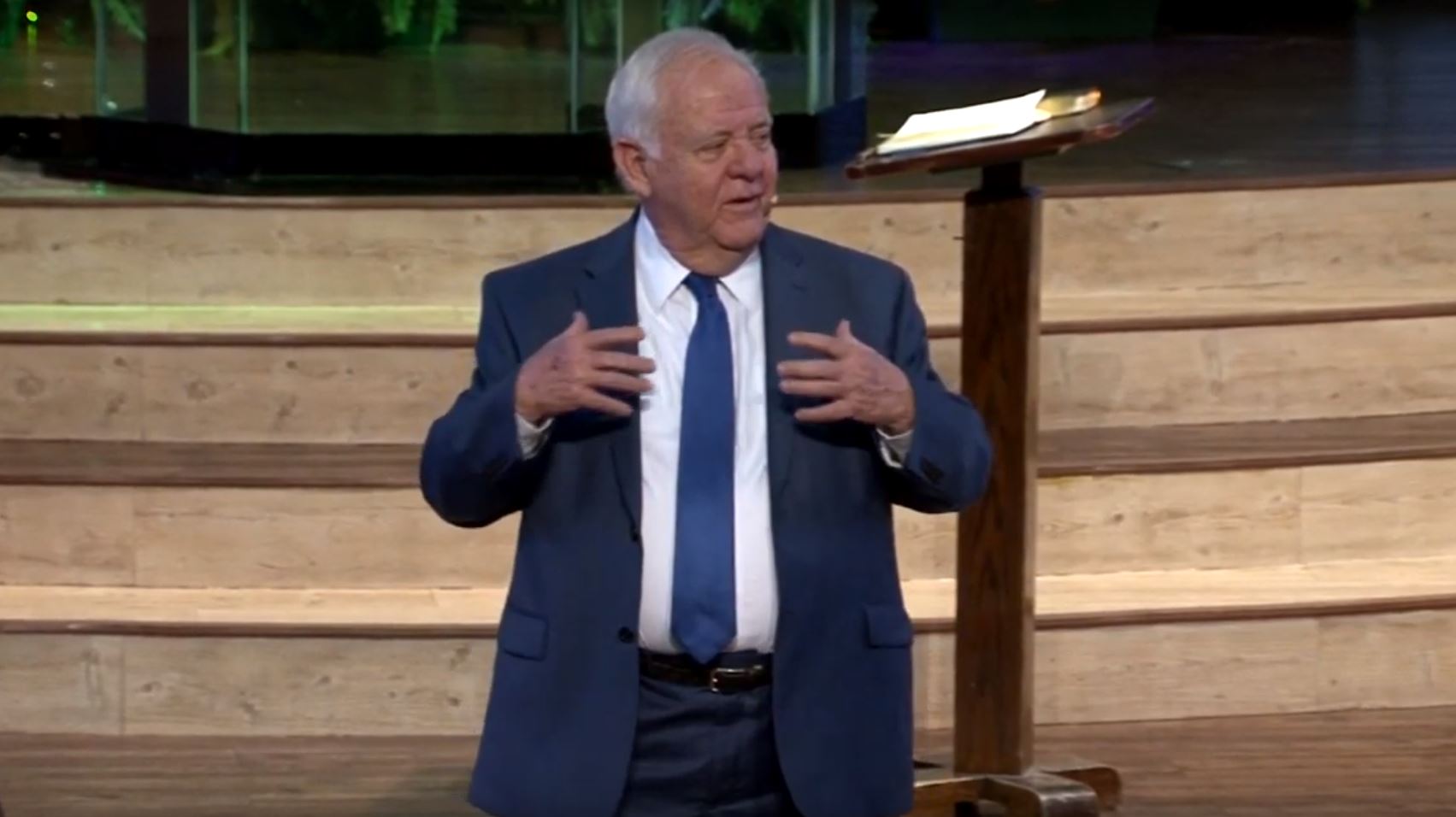
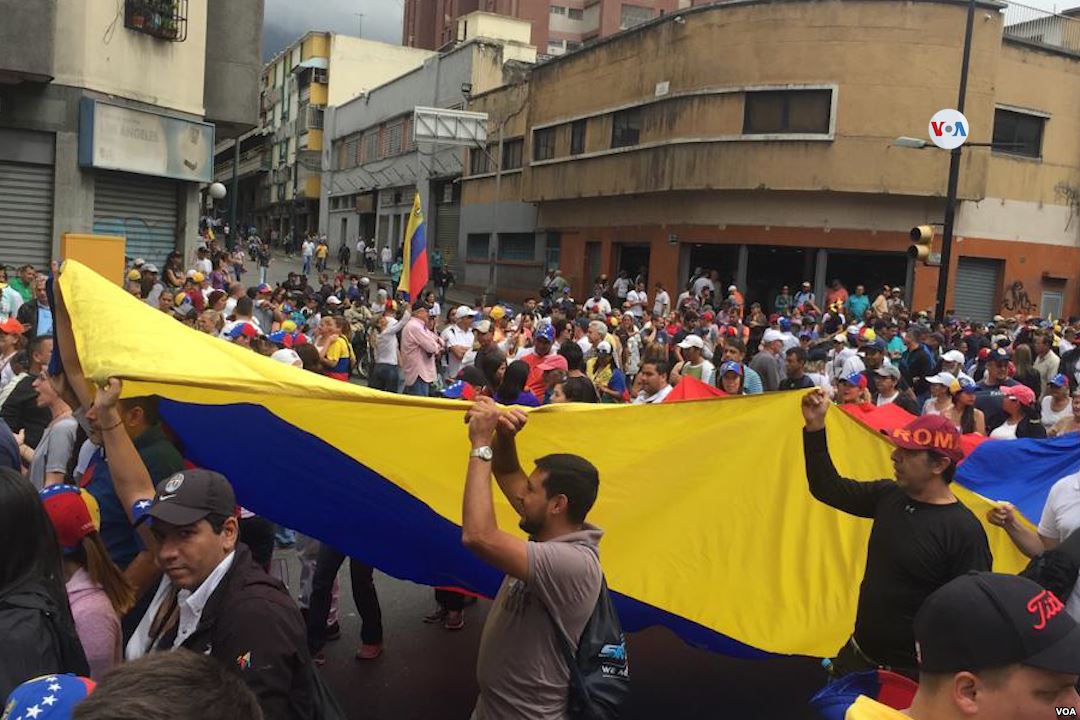
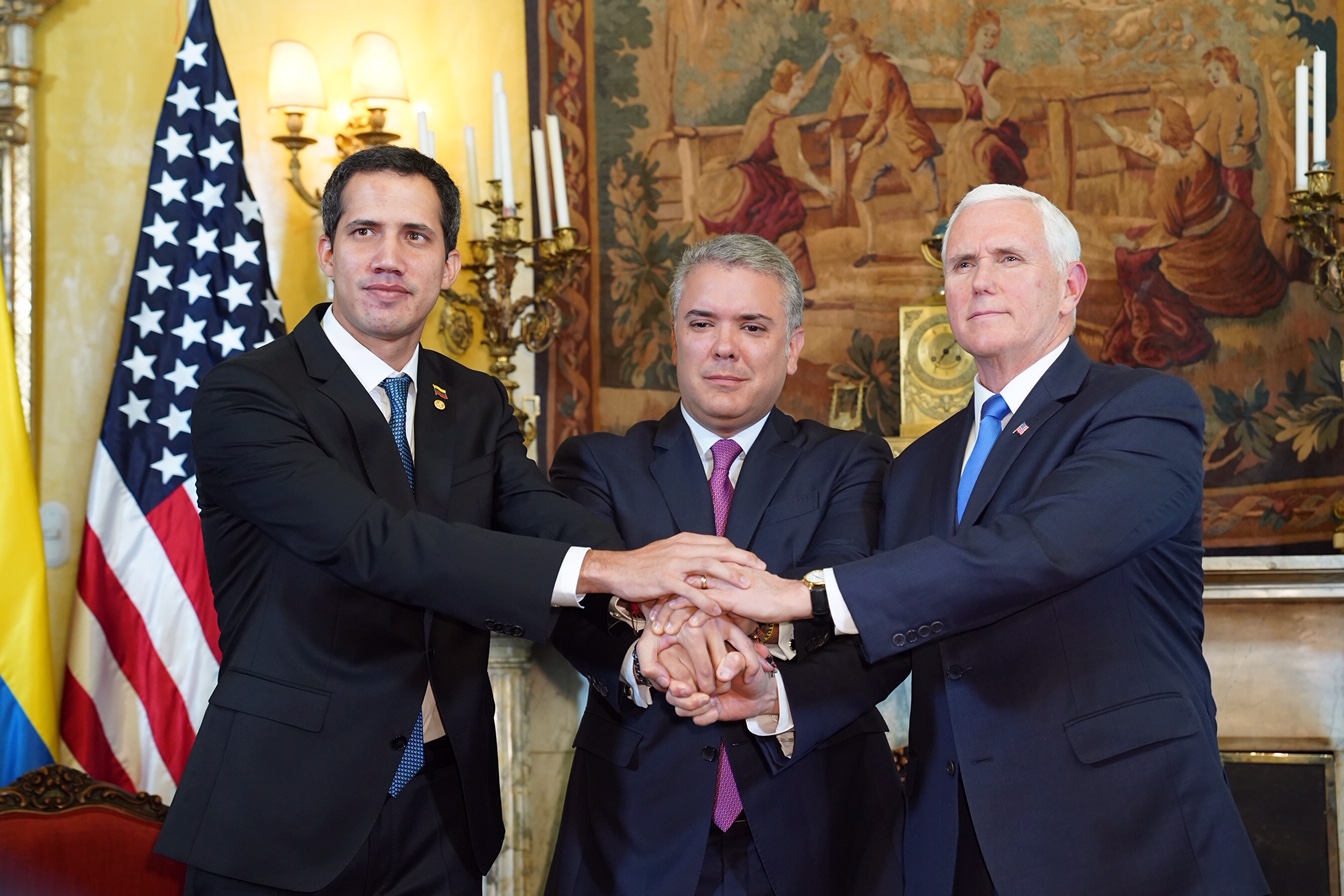

 Live in the DC area? Sign-up for Providence's in-person events list!
Live in the DC area? Sign-up for Providence's in-person events list!